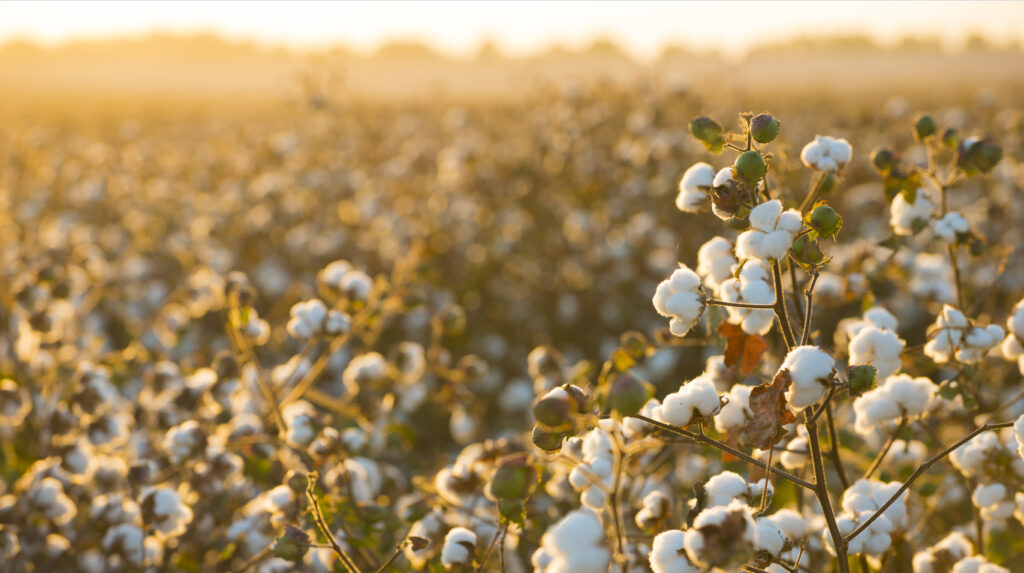From Farm to Fashion: Embracing Regenerative Cotton Farming for Nature Positive Apparel

At the beginning of January, I journeyed to the heart of the Magnolia State, far from the glitz of the Elvis Museum, to visit a cotton farm nestled at the edge of the mighty Mississippi river. This unconventional pilgrimage allowed me to witness the very roots of fashion – literally. Despite cotton’s status as the second most used fiber next to polyester, retailers seldom explore the farm when evaluating the cotton supply chain. Yet, a transformative shift seems imminent, signaling a long overdue change in the way the industry perceives and engages with the source of its most fundamental material.
At last year’s UN Climate Change Conference COP28, nature took center stage, highlighting the vital link between nature and climate control. Cotton plays a crucial role in fashion’s biodiversity goals and offers a golden opportunity for positive impact through regenerative farming. Touring the regenerative cotton fields I witnessed evidence of their thriving ecosystems, in stark contrast to neighboring conventionally farmed fields which were barren due to heavy tilling and chemical use.
Transitioning to regenerative cotton practices is anything but straightforward. Embracing minimal tillage, diverse crop rotation and cover cropping holds the promise of ecological benefits but comes with unavoidable cost increases for farmers compared to conventional farming methods. Prioritizing healthier systems, however, is crucial, and extends beyond economics. For a farmer with young children and the communities neighboring the fields, adopting regenerative practices isn’t merely a financial consideration, it is a matter of overall well-being, echoing globally.
RELATED ARTICLE: Fashion’s Ethical Makeover: 2024 Unveils Wardrobe Transparency Revolution
Apparel brands leading the way such as Patagonia, The North Face, Eileen Fisher, Nike, J Crew, and Levi’s have been outspoken in their calls to support a shift to more sustainable agriculture. However, much more work needs to be done within the supply chain to support scale. Legislation will bring into sharp focus the need for the fashion world to engage with the agricultural systems that support it. As the global regulatory landscape evolves, so will the requirements for companies to include nature-related disclosures in their sustainability reporting. Companies should start preparing for and consider their response to the emerging nature-related disclosure requirements. This shift also aligns with investors’ recognition of the risks associated with biodiversity loss, as evidenced by the World Economic Forum’s report that advised over half the global GDP significantly depends on nature resources, with fashion being one of those dependents.
The COP16 UN Biodiversity Conference 2024, along with the Task Force on Nature-related Financial Disclosures (TNFD Global), provides a framework to protect land and waterways. Businesses, via initiatives like the US Cotton Trust Protocol, Indigo AG and Business for Nature are urged to drive policies and actions for a nature-positive economy by 2030. As the fashion industry embraces this journey, flexibility and evolution in strategies will be crucial. Amid the complexity however It is important to just get started and not to have complexity strangle action.
As we wrapped up our discussions last week with a cooperative of 11 farms in the Mississippi Delta region, we all understood the complexity of bringing farmers and fashion retailers together, creating a new supply chain transparency to the farm level and were simultaneously apprehensive and excited by the opportunity ahead to embrace nature-positive fashion.












